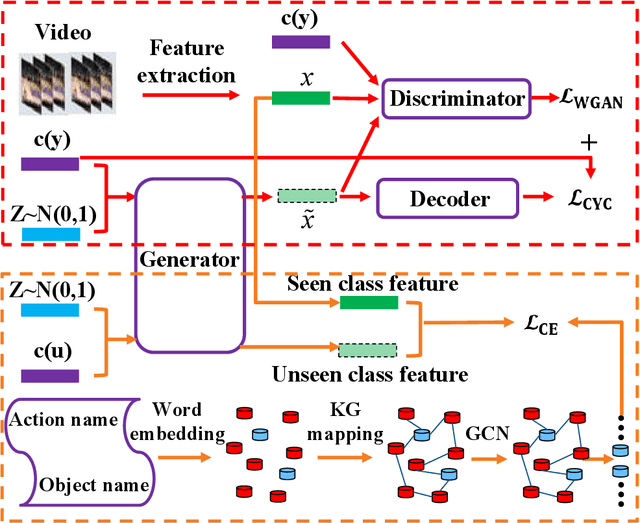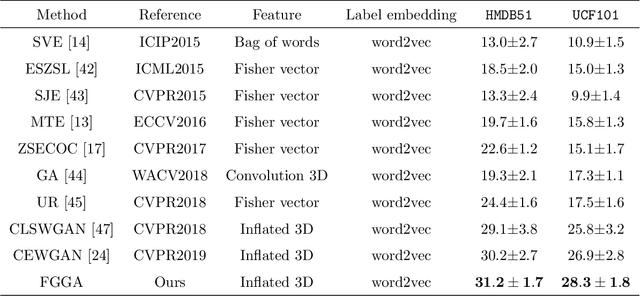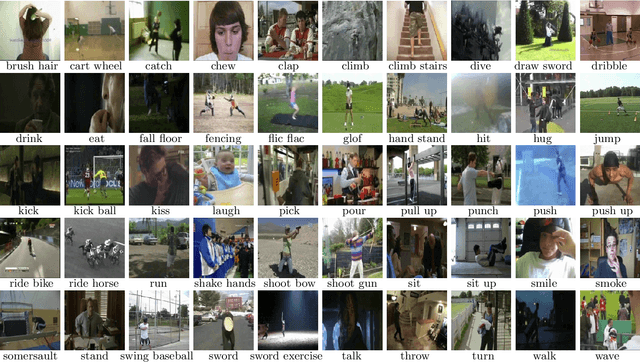GAN for Vision, KG for Relation: a Two-stage Deep Network for Zero-shot Action Recognition
Paper and Code
May 25, 2021



Zero-shot action recognition can recognize samples of unseen classes that are unavailable in training by exploring common latent semantic representation in samples. However, most methods neglected the connotative relation and extensional relation between the action classes, which leads to the poor generalization ability of the zero-shot learning. Furthermore, the learned classifier incline to predict the samples of seen class, which leads to poor classification performance. To solve the above problems, we propose a two-stage deep neural network for zero-shot action recognition, which consists of a feature generation sub-network serving as the sampling stage and a graph attention sub-network serving as the classification stage. In the sampling stage, we utilize a generative adversarial networks (GAN) trained by action features and word vectors of seen classes to synthesize the action features of unseen classes, which can balance the training sample data of seen classes and unseen classes. In the classification stage, we construct a knowledge graph (KG) based on the relationship between word vectors of action classes and related objects, and propose a graph convolution network (GCN) based on attention mechanism, which dynamically updates the relationship between action classes and objects, and enhances the generalization ability of zero-shot learning. In both stages, we all use word vectors as bridges for feature generation and classifier generalization from seen classes to unseen classes. We compare our method with state-of-the-art methods on UCF101 and HMDB51 datasets. Experimental results show that our proposed method improves the classification performance of the trained classifier and achieves higher accuracy.
 Add to Chrome
Add to Chrome Add to Firefox
Add to Firefox Add to Edge
Add to Edge